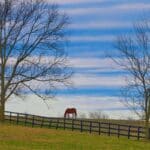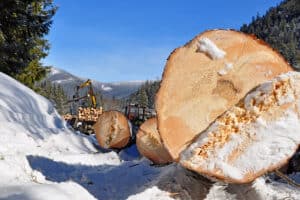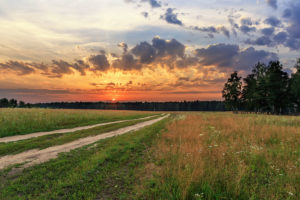We in Blue Grass are in the time of thistle, teasel and burdock. America, too, is stuck in the weeds.
Wherever I turn, I see their hostile takeover. These are not your garden-variety louts like Lamb’s Quarters and Queen Anne’s Lace. They are big and well-armed. Thistles have a mean streak. Teasels go for your eyes. And burdock heads stick to you like credit-card collectors. Weeds run in gangs; many have foreign roots.
Looking at our economy, I see more weeds than flowers.
Forty years ago a fairly large number of young people sprawled on a muddy dairy pasture in Bethel, New York practicing their own version of weed control.
I spent that weekend being job-interviewed at an “alternative” school not far from the festivities. I was not impressed with the alternatives, nor they with me. The headmaster said I was “probably too academic” for his students. “Groovy,” I said, trying to snatch a paycheck from the jaws of presumed rigor. “Far out,” he replied.
I did teach that year at an alternative college in Franconia, New Hampshire. It had a couple of hundred students and about the same number of dollars in its account. Some students were genuinely interested in learning; the rest were mostly interested in feeling good pharmacologically. In my first academic appointment, I was the head of the Social Science Division…also its only faculty. I knew nothing, but taught everything. Russian novelists. Homesteading. Practical Anarchism for Fun and Profit.
I made $3,500 in 1969-1970, a bit better than the 85 cents per hour Oberlin College had paid me six years earlier to scrub pots and mop the Talcott dining hall.
I never had much hippie in me, and a year spent with the “alternatives” left me without a taste for wiggly-tailed beans and macroneurotics. I guess I found my inner square among the out of bounds.
The first wave of back-to-the-landers in the late 1960s and 1970s were fleeing conditions they found hostile. If I had 85 cents left from my floor-boy wages, I would bet that some Boomers and their children will retrace that migration to small towns and the countryside in response to current conditions–middle-class unemployment, high living costs in metropolitan areas, uncertainty, instability and environmental fears.
Bailing out for the country is nothing new. Second homes sales have tracked growth in personal income for years. And for decades, metropolitan retirees looking for peace and quiet have moved out here as rural adults looking for work moved in there.
But what we have never seen is a middle-class migration under duress, a flight from our City Bowls to places of affordability where refugees hope to scrape by on public and private funds during their increasingly longer lives.
These City Bowl migrants will be a mix of retirees, involuntary retirees, buy-out beneficiaries, the no-longer employed and pioneers looking for a new start.
They will prefer low-tax states (www.retirementliving.com/taxes-by-state) and communities that are not high-cost, vacation destinations.
One difference between now and then, of course, is that this second wave has better judgment, job experience and more resources than the first. While many migrant Boomers will downsize, they’re not about to make-do in the mildewed tepees of their youth.
A second difference is that they have much to offer communities who are looking for new economic underpinnings. While they will have been roughed up, they bring brains, talent, experience and money.
While some economic and cultural conflicts should be expected, both newcomers and their new communities will share much more of a national culture than did the first mingling.
Those looking to book passage on this ship should keep their expectations in line with current realities.
Everywhere is the same, though different. The countryside is woven into the same national fabric as cities and suburbia. Economic problems know no boundaries.
Look up the “adversity index” of every community in the United States beginning in 1995 at www.msnbc.msn.com/id/29976394/ns/us_news-the_elkhart-project as well as places that are resisting adversity at www.nbcnews.com/id/30216797/sp-dt. Shangri-la does not exist.
There are fewer people out here, which is good and bad. Small communities have fewer people problems like traffic, lines, crowds, bureaucracies and pollution. The lack of population usually means there are fewer people who share both your skills…and interests. You need to like your own company to live in the countryside. Opportunities for structured entertainment — professional sports, movies, concerts and the like — are limited in both number and range. On the other hand, we, too, have satellite TV, Internet service, DVDs, books and even profitable newspapers.
Jobs. In most small towns and rural communities, job openings are limited and pay scales can be 50 percent lower than in big cities. Official unemployment rates underestimate actual lack of employment in rural areas by 100 percent or more in my experience. There’s a lot of “self-employment” out here.
Adapt. Start with what’s available, because starting is more important than anything else. Don’t steep in being over-qualified.
Be prepared to make something out of nothing. Most communities have their traditional business niches filled. Look into what’s not.
Newcomers may find that starting something from scratch suits them after working for a salary. Nonprofit work is often underdeveloped in rural areas.
Patience and persistence. Start something new, small and slowly. Work into it. Conserve your cash; set up a home-office. Maintain old networks; make new ones.
Every patch of dirt has weeds. They come with the territory.
Weeds survive and prosper, because they have learned to adapt. In turn, we need to adapt to those we find around us.
I don’t see this economy, however green, as reemploying many of us who are over 45 in the ways we were. The past is gone.
Among the hostile thistles, teasels and burdock, we need to find our own ground.
This content may not be used or reproduced in any manner whatsoever, in part or in whole, without written permission of LANDTHINK. Use of this content without permission is a violation of federal copyright law. The articles, posts, comments, opinions and information provided by LANDTHINK are for informational and research purposes only and DOES NOT substitute or coincide with the advice of an attorney, accountant, real estate broker or any other licensed real estate professional. LANDTHINK strongly advises visitors and readers to seek their own professional guidance and advice related to buying, investing in or selling real estate.









Add Comment